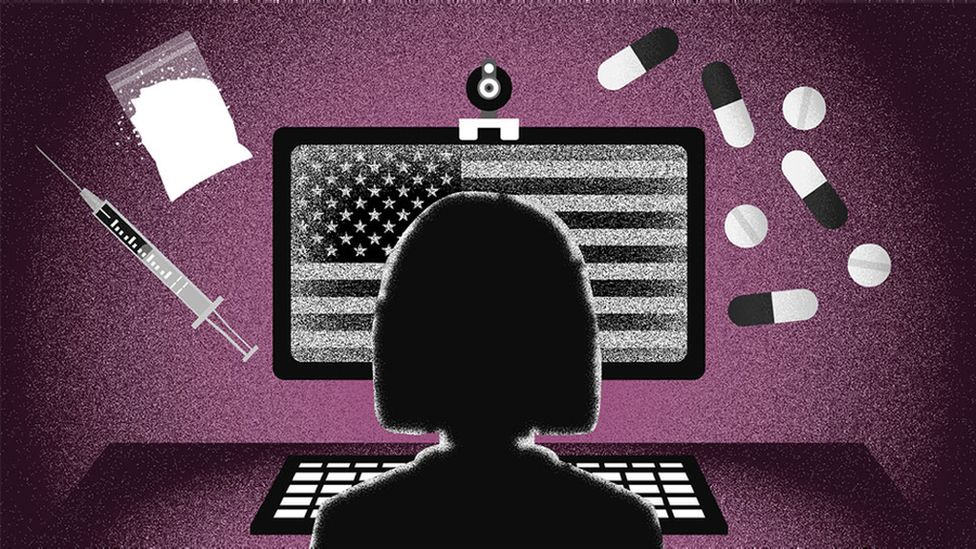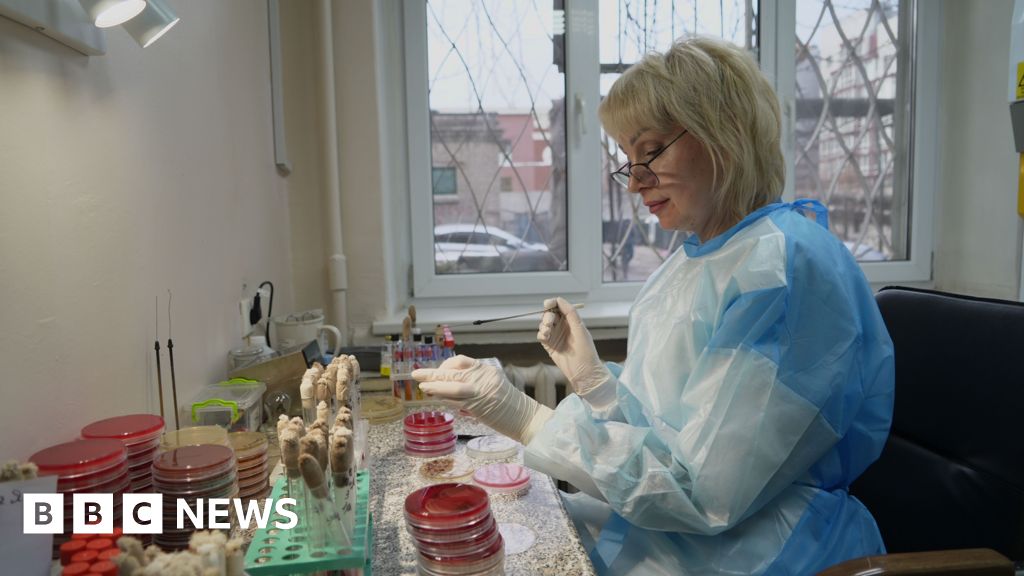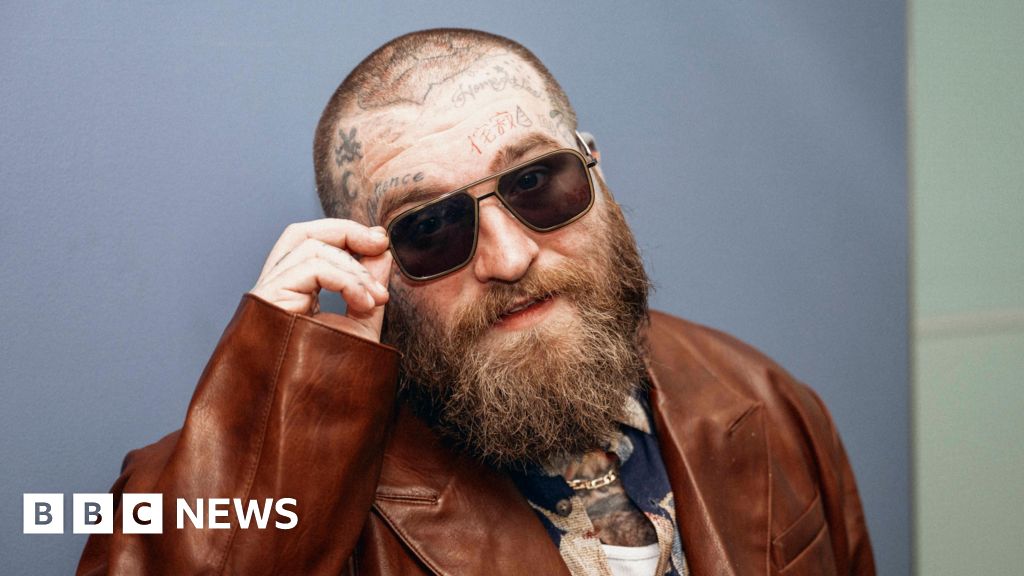ARTICLE AD BOX

Selling pharmaceuticals online seems like an attractive option for some Chinese graduates
By Danny Vincent
BBC News, Hong Kong
When Sammy left her village in Sichuan province to attend university in northern China more than a decade ago, she was following a well-trodden rite of passage.
The English language graduate was the first person in her family to go to university. She had a passion for foreign languages and dreamed of becoming a teacher. She had never heard of synthetic opioids before.
After graduating, Sammy found work at a chemicals company in the Chinese city of Shijiazhuang, selling what she thought were chemicals to clients around the world. She would practice English every day speaking to her customers online, and earn a commission for each sale she made. Her dreams of becoming a teacher quickly faded.
"Maybe others are just like me… At the start we don't know what we are selling, but when we find out we have fallen in love with the work," she said. "This work can make money," she adds.
Sammy [not her real name] is an unlikely drug trafficker. She is one of what international law enforcement agencies estimate could be thousands of online sales representatives, working for illicit Chinese pharmaceutical and chemical companies producing and smuggling illegal laboratory made drugs.
The US government has long accused China of flooding the country with deadly drugs like fentanyl, a synthetic opioid up to 50 times stronger than heroin, claims the Chinese government denies. The US says Chinese-made opioids are fuelling the worst drug crisis in the country's history. In 2022 more than 70,000 Americans died from fentanyl overdoses.
Image source, Getty Images
Image caption,The US has a problem with the smuggling and abuse of the powerful opioid fentanyl
According to a report published by the US select committee on the Chinese Communist Party, the Chinese government provides subsidies to companies openly trafficking illicit synthetic drugs. The report found tens of thousands of posts online advertising illegal drugs and pre-cursors.
The study claims that "wholly state owned" companies are involved in the trafficking of drugs. The Chinese government has consistently denied knowledge of the illegal drug trade.
Many like Sammy fall into the drug trade seemingly by accident, initially unaware of the products they are peddling online and their deadly consequences. But others are more aware of what they are selling.
Each morning Sara [not her real name] posts photos and videos across her social media platforms advertising drugs; synthetic cannabinoids, precursors for MDMA, and nitazenes, a synthetic opioid considered up to 50 times more potent than even fentanyl.
"We have many customers in Britain and have cooperated with them many times," boasts Sara, an international trade graduate, now working for an online platform.
When challenged, she is not drawn into a moral discussion about selling drugs. She claims she never asks customers how they use what she sells.
The UK National Crime and Agency (NCA) believes drug dealers are mixing the synthetic opioid with street drugs such as heroin.
According to the NCA, there have been more than 100 deaths linked to nitazenes over the past nine months, leading health professionals to warn the UK may be facing a drug-related crisis.
The BBC has found hundreds of adverts for nitazenes online. Suppliers contacted claim to send shipments through courier services, mislabelling deliveries and hiding drugs in fake packaging. The BBC has also seen courier tracking numbers provided by online sales representative in China claiming to have made successful deliveries across the UK.
Sara entered the business after university. She thought she was selling chemicals. She has worked in the industry for two and a half years. "I know most of the products," she says.
"My boss has been running this company for more than seven years, and he knows lots of customers and freight forwarders. If the product is detained, he will lose the most. So he will try his best to make the product reach you smoothly," she adds.
In March, the UK government classified 15 synthetic opioids as Class A drugs. Under the Misuse of Drugs act anyone caught supplying or producing the drugs could face up to life in prison. Those caught in possession face seven years.
According to the United Nations Office on Drugs and Crime (UNODC), China has between 40,000 and 100,000 pharmaceutical companies.
"China has long had one of the most significant pharmaceutical industries in Asia, as well as one of the largest chemical industries. And we've seen industry growth in other countries of the region," said Jeremy Douglas in late 2023, the then regional representative of the UNODC .
"While both industries are regulated, the challenge is significant given the sheer scale, and at the same time there are a number of ways to move products. Parcel post, air freight and shipping containers are all moving globally in high volumes," he said.
Mr Douglas says that synthetic drugs are disrupting the traditional drug trade. Outside of China, synthetic drugs offer opportunities for both traditional crime organisations and upstarts able to buy directly from producers half a world away.
"Synthetics like fentanyl have several advantages over traditional drugs - compact, easily shippable, pre-existing demand, replaceable. They're attractive to traffickers."
Synthetic opioids are powerful so can be shipped in small quantities
That was confirmed in my conversations with sales people working for Chinese pharmaceutical firms.
"First of all, our packaging is completely secret, no one knows what it is until you open it, and second, we will change the name of the package and will not reveal any name about the product," says Sara.
"We will get the logistics order number when we send the package, we will track the situation of the package at any time, and any anomalies can be known and solved in time," she adds.
According to Europol, the European police agency, China is the world's biggest manufacturer and distributor of synthetic, lab-made drugs. Some mimic the effects of traditional drugs like cannabis or cocaine. Chemists synthesise new drugs in order to stay one step ahead of the law.
"It is criminal entrepreneurship, but in a legitimate framework which is really unique," says Dr Louise Shelly the director of the Terrorism, Transnational Crime and Corruption Center (TraCCC) at George Mason University, and author of Dark Commerce.
"I have not seen such a professionalism and a corporate element in this anywhere else in the world. Criminal activity was a type of social mobility."
In 2020, researchers from TraCCC studied over 350 English language websites advertising the synthetic opioid fentanyl. "From all the adverts that we found, nearly 40% of them were from corporate registries, and the largest hub of that was in Wuhan," says Dr Shelly.
Image source, Alamy
Image caption,US authorities intercept some synthetic opioids shipped from China
The sales people contacted by the BBC see the drug trade as simply another aspect of e-commerce. When challenged over selling drugs that damage lives, one described herself as a "middleman."
"Somebody needs it, somebody makes it, and I am just a middleman who lets customers know that I have it and what they do with it, I don't care," she says. "Then I figured out I just need to make money. I don't know and don't care. Everyone has their own needs."
The woman boasts of clients from Canada to Croatia. She provided photos of recent drugs shipments complete with labels showing a UK address.
"I didn't know at first until I went online and translated the product into Chinese," she says via a message punctuated with a teary emoji.
Another seller says: "This industry is easy, and you can get higher wages, which attracts a large number of young people". Natalie [not her real name], focuses on fentanyl.
"We buy from over 10 different labs and have a large selection. I have a professional shipping agent who packaged goods so has a very high delivery success rate to the UK."
Meanwhile, another supplier claimed to be able to smuggle drugs into the UK hidden in dog food packaging. "You don't need to worry about the packaging. We guarantee you safe delivery."
"We ship in large quantities all over the world every day. Please trust our professional team. We guarantee 100% safe transportation."
In 2019, the Chinese government banned all forms of fentanyl and its analogues. In January 2024, China and the US launched a joint operation to curb the production of the synthetic opioid fentanyl
"As long as market demand remains high in some parts of the world then that demand will be met in one way or another," said Mr Douglas from the UNODC.

 9 months ago
39
9 months ago
39








 English (US) ·
English (US) ·